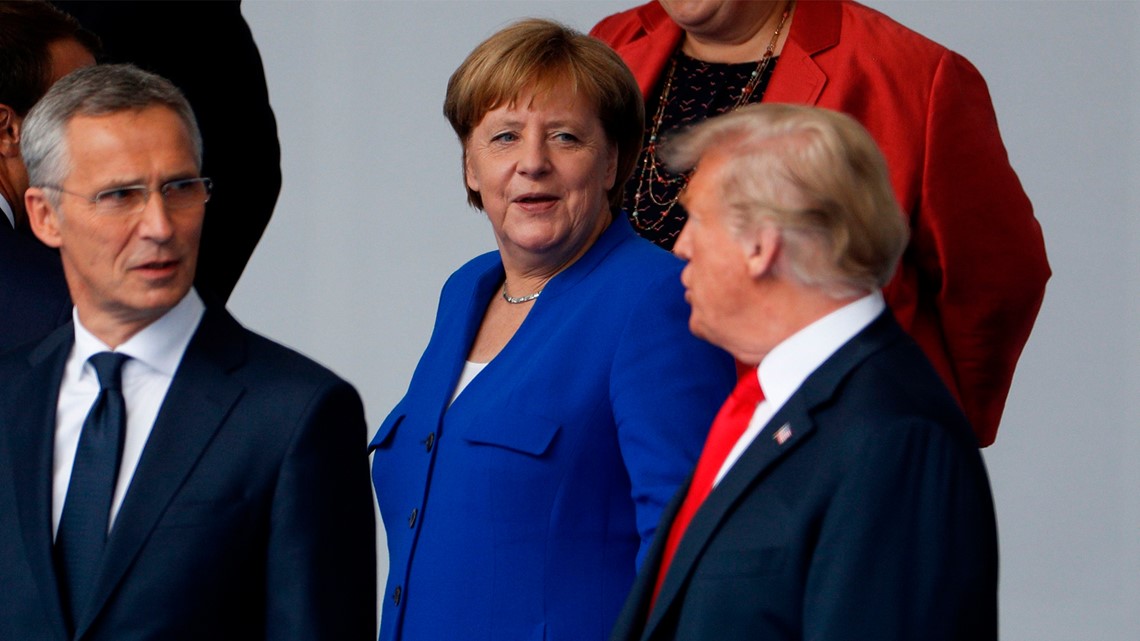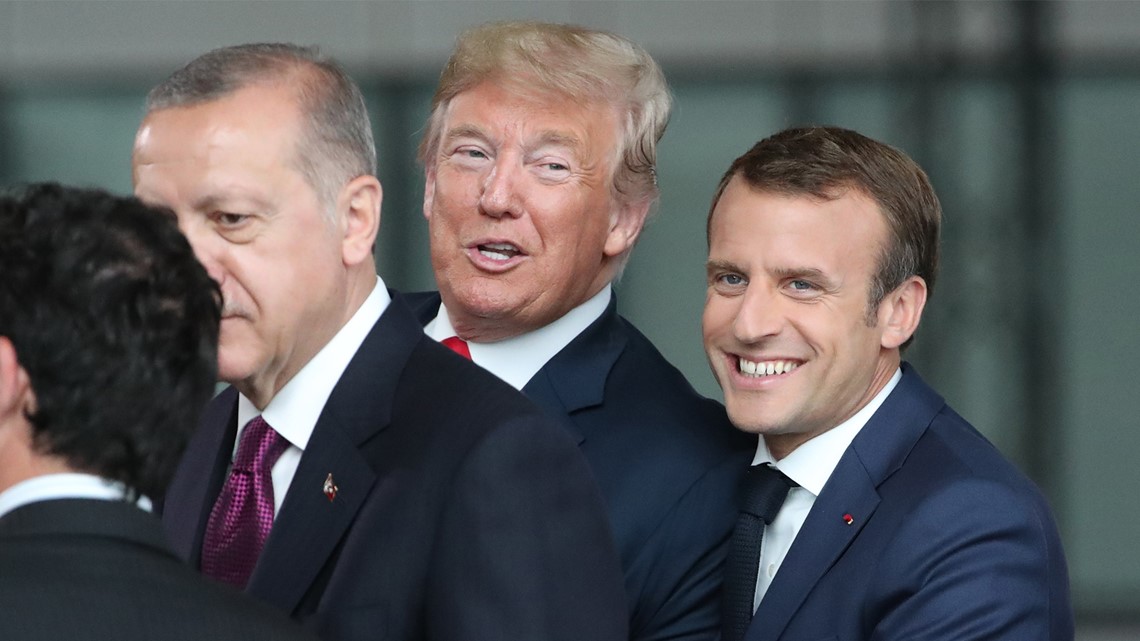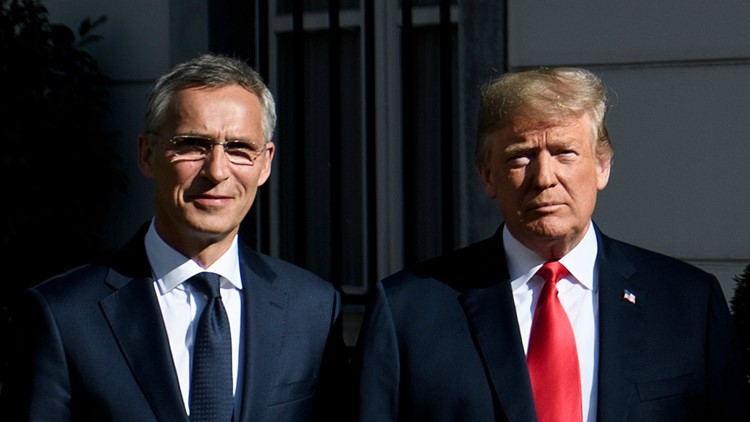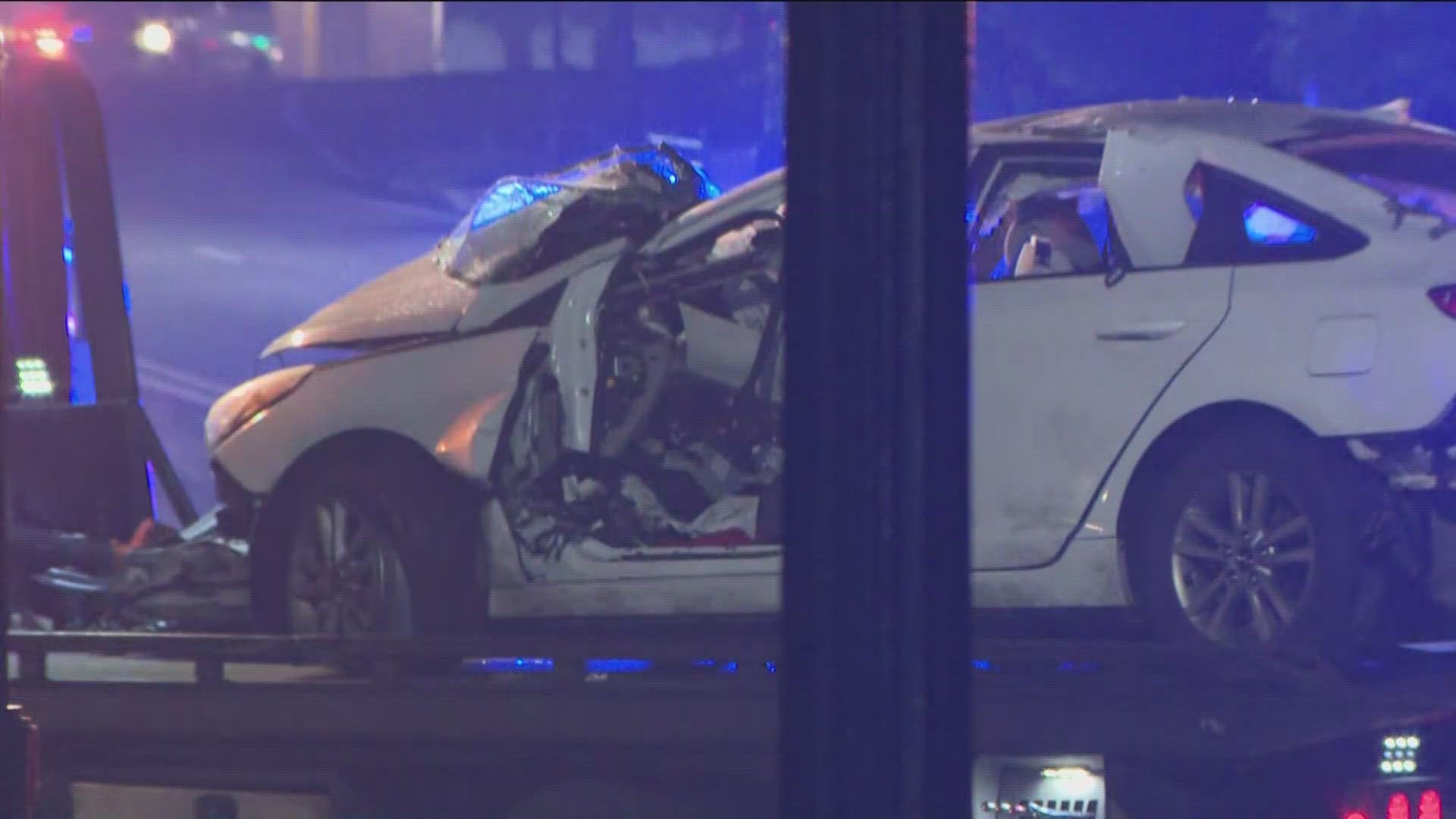BRUSSELS — President Donald Trump barreled into a NATO summit Wednesday with claims that a pipeline deal has left Germany "totally controlled" and "captive to Russia" as he lobbed fresh complaints about allies' "delinquent" defense spending at the opening of what was expected to be a fraught two-day meeting.
Trump, in a testy exchange with NATO Secretary-General Jens Stoltenberg, took issue with the U.S. protecting Germany as it strikes deals with Russia.
"I have to say, I think it's very sad when Germany makes a massive oil and gas deal with Russia where we're supposed to be guarding against Russia," Trump said at a breakfast with Stoltenberg. "We're supposed to protect you against Russia but they're paying billions of dollars to Russia and I think that's very inappropriate."
Trump repeatedly described Germany as "captive to Russia" and urged NATO to look into the issue.
Drawing on her own background, German Chancellor Angela Merkel pushed back sharply, insisting that Germany makes its own decisions.
"I've experienced myself a part of Germany controlled by the Soviet Union and I'm very happy today that we are united in freedom as the Federal Republic of Germany and can thus say that we can determine our own policies and make our own decisions and that's very good," she said.
The president appeared to be referring to the Nord Stream 2 pipeline that would bring gas from Russia to Germany's northeastern Baltic coast, bypassing Eastern European nations like Poland and Ukraine and doubling the amount of gas Russia can send directly to Germany. The vast undersea pipeline is opposed by the U.S. and some other EU members, who warn it could give Moscow greater leverage over Western Europe.
In their back-and-forth, Stoltenberg stressed to Trump that NATO members have been able to work together despite their differences. "I think that two world wars and the Cold War taught us that we are stronger together than apart," he told the president, trying to calm tensions.
Trump's pipeline criticism was an unusual line of attack for a president who has appeared eager to improve relations with Putin and dismissed the U.S. intelligence community's assessment that Russia tried to undermine Western democracy by meddling in the 2016 U.S. presidential election to help Trump win.
Back in the U.S., Democratic leaders Nancy Pelosi and Chuck Schumer issued a joint statement describing Trump's "brazen insults and denigration of one of America's most steadfast allies, Germany," as "an embarrassment."
"His behavior this morning is another profoundly disturbing signal that the president is more loyal to President Putin than to our NATO allies," they wrote.
Republican Sen. Orrin Hatch also took issue with Trump, saying "I don't agree with that. Germans wouldn't agree with that. They are a very strong people."
Sen. Angus King, I-Maine, told CNN that Trump's complaining about NATO was "like turning a family squabble into divorce proceedings." He said the pipeline arrangement goes back to 2002 "when everybody viewed Russia in a benign way."
"Now is not the time" to be alienating allies, he said.
But Sen. Tom Cotton, R-Arkansas, a strong supporter of the president, said the pipeline issue strikes at the "heart of NATO unity."
"The pipeline gets cheap Russian gas to Germany while bypassing smaller Eastern European nations, allowing Russia to pressure them while Germany is held harmless," he tweeted, adding: "No amount of preening in Berlin will cover this nakedly selfish policy."
Despite Trump's claims about Germany, Merkel served as a forceful advocate for imposing — and maintaining — sanctions on Russia after it annexed Crimea in 2014, arguing that it violated the principles of the international order established after World War II. The president is also not the first leader to point to the impact of Nord Stream 2 on Europe, echoing complaints from Eastern European allies who note it would cut out transit countries such as Poland and Ukraine.


Trump and Merkel met later Wednesday on the sidelines of the summit and kept their remarks polite during a photo opportunity with the press.
Trump told reporters during brief remarks at the end of the meeting that the two had a "very, very good relationship" and congratulated Merkel on her "tremendous success." Asked if they had discussed the pipeline, he said, "Yes," but declined to elaborate.
Merkel, for her part, called the two nations "good partners" and said "we wish to continue to cooperate in the future."
Trump then met with French President Emmanuel Macron, who said he disagreed with Trump's pipeline assessment.


Trump's dramatic exchange with Stoltenberg set the tone for what was already expected to be a tense day of meetings with leaders of the military alliance as Trump presses jittery NATO allies about their military spending.
"The United States is paying far too much and other countries are not paying enough, especially some. So we're going to have a meeting on that," Trump said, describing the situation as "disproportionate and not fair to the taxpayers of the United States."
"They will spend more," he later predicted. "I have great confidence they'll be spending more."
Trump has been pushing NATO members to reach their agreed-to target of spending 2 percent of their gross domestic products on national defense by 2024 and has accused those who don't of freeloading off the U.S.
"Many countries in NATO, which we are expected to defend, are not only short of their current commitment of 2% (which is low), but are also delinquent for many years in payments that have not been made," he tweeted Tuesday en route to Europe, asking: "Will they reimburse the U.S.?"
That's not how the spending works. Two percent represents the amount each country aims to spend on its own defense, not some kind of direct payment to NATO or the U.S.
NATO estimates that 15 members, or just over half, will meet the benchmark by 2024 based on current trends.
During his campaign, Trump called NATO "obsolete" and suggested the U.S. might not come to the defense of members if they found themselves under attack — a shift that would represent a fundamental realignment of the modern world order. He also called Brussels a "hell hole" and "a mess." Trump has moderated his language somewhat since taking office, but has continued to dwell on the issue, even as many NATO members have agreed to up their spending.
Stoltenberg, for his part, credited Trump for spurring NATO nations to spend more on defense.
"We all agree that we have to do more," he said, describing last year as marking the biggest increase in defense spending across Europe and Canada in a generation.
Trump also took credit for the spending, telling the NATO chief that "because of me they've raised about $40 billion over the last year. So I think the secretary-general likes Trump. He may be the only one, but that's OK with me."
Brussels is the first leg of a weeklong European tour that will include stops in London and Scotland, as well as a highly anticipated meeting next week with Russia's Vladimir Putin.
Trump predicted as he departed Washington that the "easiest" leg of the journey would be the sit-down with Putin — a comment that did little to reassure allies fretting over his potential embrace of a Russian leader they regard as hostile.
On the eve of the NATO summit, European Council President Donald Tusk pushed back against Trump's constant criticism of European allies and urged him to remember who his friends are when he meets with Putin in Helsinki.
"Dear America, appreciate your allies, after all you don't have all that many," he said.
__
Associated Press writers Ken Thomas, Darlene Superville and Zeke Miller in Washington and Maria Danilova in Moscow contributed to this report.



